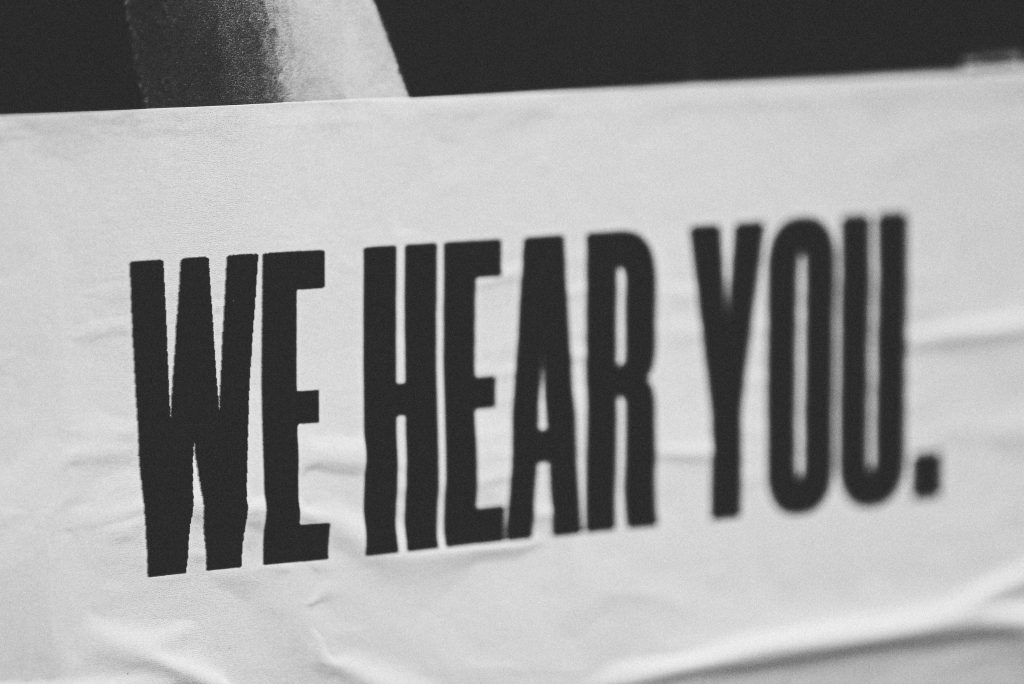Everyone wants to feel that their perspective is taken into account and understood. That their emotions are heard and accepted by others. Emotional validation is a vital skill to communicate understanding, empathy and acceptance in important relationships, such as those with your partner, but also with your children and friends. It can be particularly useful when someone is highly emotional. You can help the person feel heard, supported and cared for. It can also help to calm a situation down, make a person feel less agitated and help someone to regulate their emotions.
Emotional validation versus invalidation
Emotional validation is the ‘’recognition or affirmation that a person or their feelings or opinions are valid or worthwhile.’’ When we validate someone, we show them we understand where they are coming from and that their feelings and behaviour make sense in their current situation.
Emotional invalidation is when someone’s emotions are seen as not valid, irrational, and should be hidden or minimized. That their personal experience is incorrect or insignificant.
Have you or maybe someone close to you expressed that they often feel misunderstood or unheard by others? Validation may be a crucial skill to improve your relationship.
How do I validate someone?
Validation involves three steps:
-
listening & observing
Listening to what the other person says about their feelings and what has happened. Observe their reaction and their emotions. Take a moment to stand in their shoes.
-
reflecting
Reflecting is restating what you just heard in your own words. This involves reflecting the other person’s feelings, thoughts and behaviour, to confirm that you have correctly understood what they are trying to communicate.
-
direct validation
Showing the other person that you understand where they are coming from in a non-judgemental way. Normalizing their reaction in the current situation. Avoid arguing, giving advice or disagreeing with them.
Example
For example, you come home from a long hard day of work and sit on the sofa. Your partner starts shouting that they have to do all the household chores by themselves and that you don’t help them with anything around the house. A validating statement would be to say that you can imagine that it must be very frustrating that they feel like they do everything in the house, and you would like to work out how you can make it easier for them or share the responsibilities.
Things to avoid saying or doing
- Disagreeing or arguing with them – Validation doesn’t necessarily mean you agree with the other person. It just means that you understand their perspective and accept their feelings. Once you have validated them, you can discuss your own perspective at a more suitable time.
- ‘’I’m sorry you feel that way’’ – although the intention with these sort of statements might seem good, it can be seen as a polite way of saying that someone’s feelings are not correct.
- Minimising the situation – Statements such as ‘’it could be worse’’, ‘’why do you care’’ or ‘’what’s the big deal’’ only lead to increased feelings of invalidation and agitation.
- Problem-solving or giving advice – This can be problematic when emotions are particularly high. Save this for after they feel validated and are in a place to discuss the next steps.
Final tips
- Consider your body language or facial expression – Try to convey empathy and attentiveness with your body. Acting disinterested or fed up for example will only act against your validating statement.
- Show curiosity – Ask questions and clarify if you understand what they meant.
- Show empathy – Show the other person that you care about how they feel
Validation doesn’t mean your feelings don’t matter
Bear in mind that validating someone’s emotions does not mean you have to allow yourself to be treated badly by another person. If you feel like some are acting unfairly or aggressively with you, it is important to maintain your boundaries and leave the situation if necessary.
If someone is struggling with their emotions, it can help to encourage them to seek professional help. You can find out more about online or blended treatment via NiceDay at www.nicedaynederland.nl











